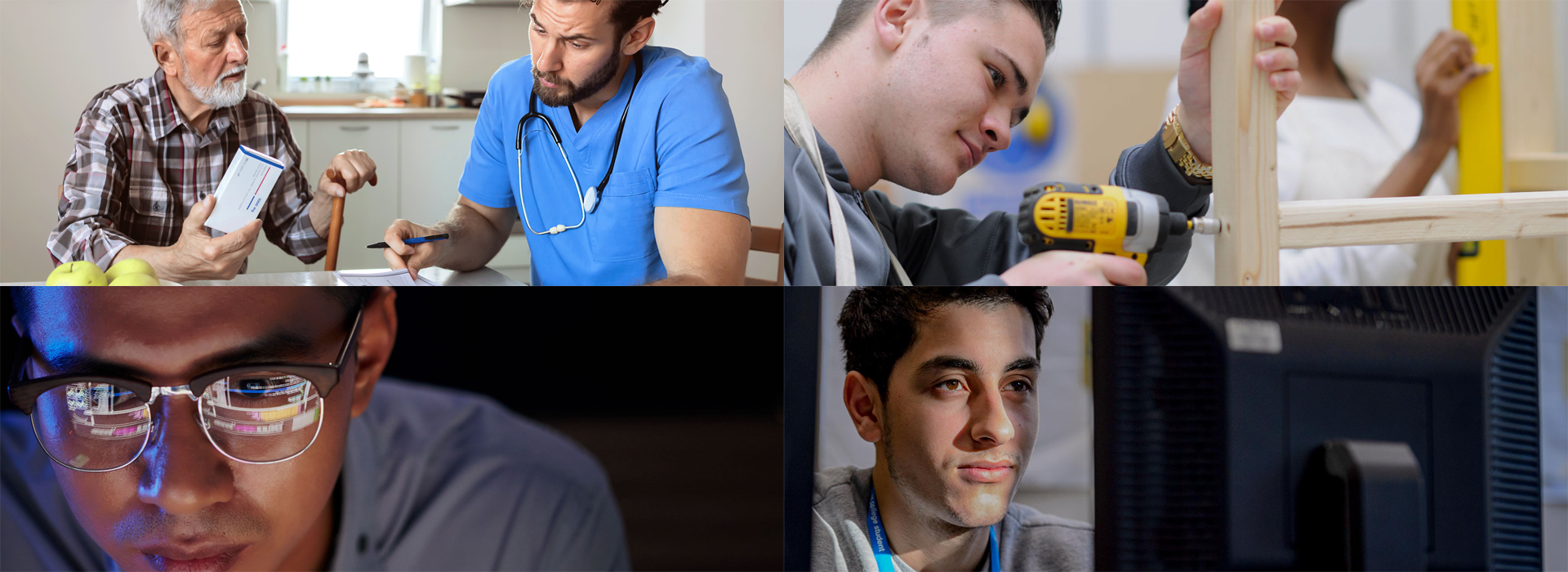Key Facts
-
Starting
7 Sep 2026- Location
- Merton
- Start Date
- Sep 2026
- Level
- Level 3
- Code
- MCOX500TP

T Level in Building Services Engineering for Construction (Electrical Installation )
This T Level qualification in Building Services Engineering for Construction (Electrical Installation pathway) will allow students to develop specialist knowledge and skills on how to install, commission and maintain electrical and electronic systems.
In year one, you will develop your knowledge and understanding of the contexts, concepts and theories of the construction industry while in year two, you will specialise in Electrotechnical Engineering. Over both years, you will get the opportunity to put the knowledge and skills gained into action as you start your industry placement, working with an employer to develop your technical skills in a real-life construction environment.
T-Levels aim to provide the knowledge and experience needed to open the door to highly skilled employment, higher level studies or a Higher Apprenticeship. The equivalent of three A Levels, T-Levels are recognised by UCAS to support applications to study at university.
-
Entry Requirements
5 GCSE's at grades 9-5 including Maths, Science and English Language. Students on this course will need to show commitment to the values of the construction and electrical installation sectors. Once you have applied we will be in touch to arrange an interview. -
Course Content
Core Content Within the core content of this course you will develop a general understanding of construction and engineering, including:Health and safety The science behind building design, surveying and planning Making accurate and appropriate measurements Construction methods Building regulations and standards Data management and information standards in construction Relationship management and customer service How the Internet of Things (IoT) impacts construction Digital engineering techniques Mathematical techniques to solve construction problems Construction design principles and processes The construction industry and its role in the economy Sustainability and the environmental impact of construction Business, commerce and corporate social responsibility
Occupational Specialism Content In addition to the core content, you will also undertake the occupational specialism content for Electrotechnical Engineering, including:
Install electrotechnical systems Commission electrotechnical systems Maintain electrotechnical systems De-commission electrotechnical systems
Industry Placement You will also undertake 315 hours working with an employer on an Industry Placement. You'll spend 80% of your time learning in our industry-standard facilities, and 20% gaining valuable experience on an industry placement.
-
Progression Next Steps
Following a T Level, you could progress straight into a skilled profession or continue your studies with a degree or higher apprenticeship. Career options include becoming an Installation or Maintenance Electrician, amongst many others. -
Course Structure
The technical qualification is made up of two components, both of which need to be successfully achieved.The Core Component: The core content is designed to offer sufficient breadth of knowledge and skills for the learner to apply in a variety of contexts related to the industry and those occupational specialisms linked to this T Level. The core content is the building blocks of knowledge and skills that will give a learner a broad understanding of the industry and job roles. At the same time, it will develop the core skills they will need to apply when working within the industry. The knowledge tests and employer-set project are externally assessed.
Occupational Specialisms: Occupational specialisms develop the knowledge, skills and behaviours necessary to achieve threshold competence in an occupation. Threshold competence is defined as when a learner's attainment against the knowledge, skills and behaviours is of a standard for them to enter the occupation and industry. They must also demonstrate the ability to achieve occupational competence over time with the correct support and training.
-
Assessment Details
You will be assessed via:Mandatory exams Observation Assignments Industry placement and journal Projects Witness testimony Personal statements




